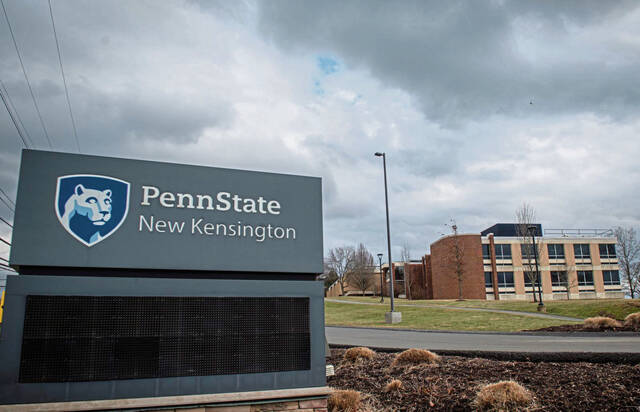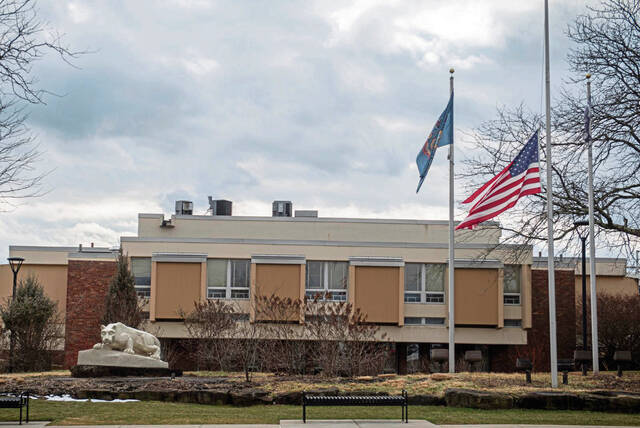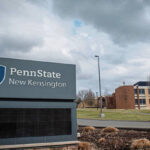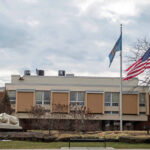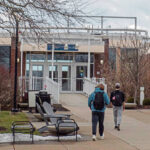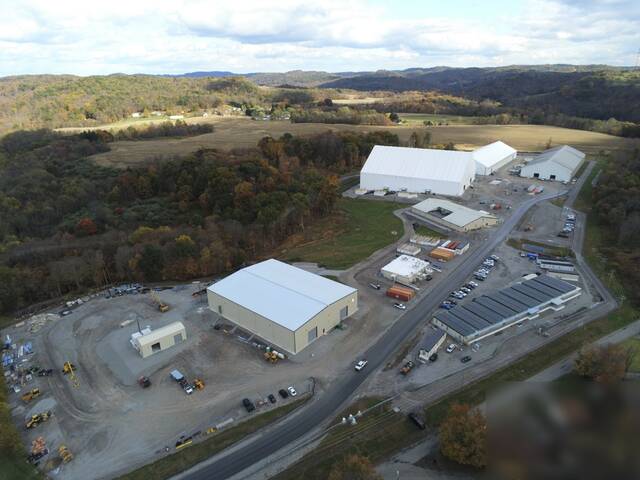Penn State officials have made it clear that it will close some of its branch campuses, and all four of those in Southwestern Pennsylvania are among those that might close.
University President Neeli Bendapudi said in a statement Tuesday that she expects a final recommendation to be announced no later than the end of the current semester. She expects to make a final decision before spring commencement.
But a Penn State spokesman said that no campuses will close before the end of the 2026-2027 academic year.
For campuses that close in two years, she said, faculty can explore opportunities to be reassigned within Penn State, and students will be provided a pathway so they can complete their degrees at Penn State, either on campus or online.
Bendapudi said that Penn State’s commonwealth campus structure “cannot continue with business as usual,” and the university cannot sustain a viable branch campus system without closing some campuses.
“The challenges we face — declining enrollments, demographic shifts and financial pressures — are not unique to Penn State, but they require us to make difficult choices,” she said. “Across higher education, institutions are grappling with similar headwinds, and we have reached a moment where doing nothing is no longer an option.”
A team of Penn State administrators will co-lead a group that will bring a final recommendation on the future composition of the Commonwealth Campus system.
The seven largest branch campuses — Abington, Altoona, Behrend (in Erie), Berks, Brandywine, Harrisburg and Lehigh Valley — along with a graduate education-focused campus at Great Valley, will remain open. Those campuses make up nearly three-fourths of total commonwealth campus enrollment and two-thirds of campus faculty and staff.
Penn State Dickinson Law, the College of Medicine and the Pennsylvania College of Technology also will remain open, Bendapudi’s statement said.
But 12 other branch campuses are under consideration to be closed — including all four in Southwestern Pennsylvania:
Penn State New Kensington, in Upper Burrell; Penn State Allegheny, in McKeesport; Penn State Beaver, in Monaca, Beaver County; and Penn State Fayette, the Eberly Campus, in North Union, Fayette County.
Even though some, unidentified branch campuses will close in two years, Penn State will continue extending offers and admitting new students for this fall at all commonwealth campuses.
“It’s a slap in the face,” said Penelope Morrison, biobehavioral health program coordinator at Penn State New Kensington.
“Many of the students here come from under-resourced communities, and a lot have chosen to come here because they want a Penn State education without going bankrupt. They come from communities that are not privileged in any way, and they are trying to better themselves.”
Penn State New Kensington offers 12 bachelor degree programs and five associate degree programs, as well as four men’s and four women’s sports.
Morrison said she had heard rumblings of campus closings, so the news didn’t come as a complete surprise. She understands there are other factors at play but is frustrated with the process, even in its early stages. She said there has been a lack of staff input.
“The faculty are here because we care about these students,” she said. “Some of our kids need to be in a smaller environment. Not every kid succeeds in a large, main campus setting. I, myself, am a first-generation college student. If it had not been for my own experience with a small campus, I would never have gotten my Ph.D. and become a college professor.”
Freshman Calla Garland, a 2024 Highlands grad, said cost and convenience were among the reasons she chose Penn State New Ken over other campuses.
She already is plotting next moves in the wake of Tuesday’s news.
“The lack of information is what’s really bothering most of the students,” Garland said. “They say they’ll remain open through 2026-27, but that still doesn’t change what’s going to happen.”
If PSNK is one that closes, Garland and others will have to find an alternate college that offers the same major and accepts transfer credits.
If they move to another Penn State campus, they’ll be forced to pay more — and live away from home.
“Part of the reason I chose New Kensington is the fact I don’t have to live in a dorm,” she said. “With a possible closure looming, I’d have to basically rearrange my entire life for one final year of college unless they made the decision to tell us sooner. It’s very distressing to be left in the dark, and I think some clarity about the situation would ease a lot of students’ minds.”
The PSNK campus in Upper Burrell was founded in 1958 to serve students across the Alle-Kiski Valley. Operations moved to the current address along Seventh Street Road in 1966 after Alcoa donated 35 acres of land. Not long after, the school bought 30 additional acres of farmland to expand.
Upper Burrell Township Supervisor Ross Walker said the impact on the township would be devastating if the campus shuttered.
Aside from being a “wonderful friend to the community,” Walker said, the economic hit would be substantial. It would negate the local services tax paid by employees, as well as dollars spent in the community by the more than 500 students.
“I would hate to see them go,” Walker said. “Whatever we could do, we would, but it’s out of our hands.”
“We have made enhancements in enrollment management, fought for parity in state funding and sought new ways to expand access,” Bendapudi said. “Yet, despite these efforts, enrollment at many of our Commonwealth Campuses continues to decline, and many of the counties that host these campuses are expected to decrease in population for the next 30 years. Given these realities, we must make hard decisions now to ensure Penn State’s future remains strong.”
At the Penn State Fayette campus, enrollment in the nine bachelor’s degree programs and five associate degree programs has been on a steady decline. The fall 2024 enrollment of 407 students reflected a nearly 30% drop since 2020 (577 enrollment).
Fayette County Commissioner Dave Lohr said he’s praying Penn State Fayette won’t close.
“It would be very devastating,” Lohr said.
The campus provides benefits to the county on multiple levels, he said, not least being the educational opportunities it offers. Lohr attended in the 1970s, earning an engineering degree.
He said the four-year Fayette nursing program has been a boon to the area, never more so than during the shortage of nurses that has been a challenge since the covid-19 pandemic began in 2020.
“There are a lot of people there now for nursing,” he said. “There’s such a need in the medical world.”
The loss of that program, he said, “could really hurt our local hospitals and health care providers.”
Closure of the campus also would take a toll on the local economy, according to Lohr.
“People spend their money when they’re here,” he said. “People may move here just to go to the school.”
According to the campus website, it employs about 40 faculty and 60 support staff members.
Muriel Nuttall, executive director of the Fayette County Chamber of Commerce, wasn’t happy when she learned Penn State is looking to shutter some of its sites,.
“I can’t imagine Fayette County without Penn State,” she said. “It’s an incredible partner here in the county. It’s a hub of activity there. There are seminars and fundraisers, just so many things that go on over there.”
Nuttall said the campus plays host to programs that benefit people from outside the university, including community walks and a STEM competition in hydraulics and pneumatics for area middle school students.
The chamber has held its legislative luncheons at the campus, and a local workforce partnership program also meets there.
Nuttall also discussed the Penn State campus’ role in regional postsecondary education.
“There are so many people who come through their nursing and business administration programs,” she said. “Those are all very strong programs.
“We’ll hope for the best and hope (Penn State) understands the importance of that campus to a rural community.”
New Kensington Mayor Tom Guzzo said he plans to meet with Bendapudi to reinforce the impact of Penn State New Kensington on the city.
Crucial opportunities in technology, manufacturing and economic growth have come through collaborations, such as the Digital Foundry and The Corner Launchbox, he said.
“Certainly, I would hope that, over the decision-making process, we would be considered first and foremost for the kids of our area and also for the people who are employed there, but also for the impact they’ve had on our revitalization,” Guzzo said.
“We’ll do everything we can to impress on Dr. Bendapudi the opportunities that have been provided that are life-changing.”
But Bendapudi said in her statement: “We have exhausted reasonable alternatives to maintain the current number of campuses.
”We now must move forward with a structure that is sustainable, one that allows our strongest campuses — where we can provide our students with the best opportunities for success and engagement — to thrive, while we make difficult but necessary decisions about others.”
“We know that change of this magnitude is deeply personal for students, faculty, staff and communities, and we are fully committed to providing support to minimize personal impacts,” wrote Wyatt DuBois, director of University Public Relations for Penn State. “Campus leaders are working to schedule listening sessions with their communities, and every student has the opportunity to connect with staff on their campus to discuss their personal situation.”
Staff writer Kellen Stepler contributed.


